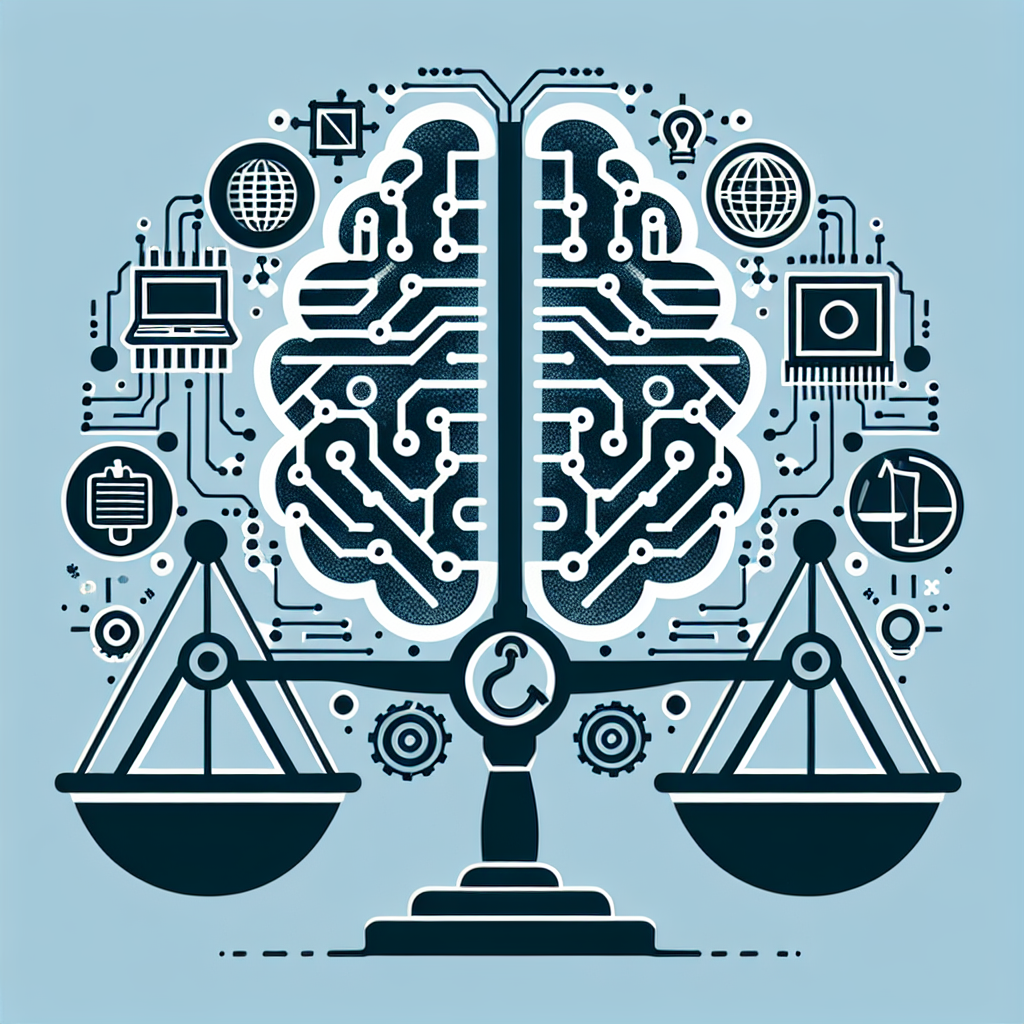AI and Regulatory Compliance: Ensuring Legal and Ethical Use
In recent years, artificial intelligence (AI) has gained significant traction across various industries due to its ability to streamline processes, improve decision-making, and drive innovation. However, as the use of AI continues to proliferate, so do concerns around regulatory compliance and ensuring that AI systems are used in a legal and ethical manner. In this article, we will explore the importance of regulatory compliance in AI, the challenges faced by organizations, and strategies to ensure legal and ethical use of AI.
The Importance of Regulatory Compliance in AI
Regulatory compliance is crucial when it comes to the use of AI, as it helps to protect individuals’ rights, ensure fair and transparent decision-making processes, and maintain trust in AI systems. There are several key regulations that organizations need to consider when deploying AI, including:
1. General Data Protection Regulation (GDPR): GDPR is a comprehensive data protection regulation that governs the collection, processing, and storage of personal data of individuals within the European Union. Organizations using AI must ensure that they comply with GDPR requirements, such as obtaining explicit consent for data processing, implementing data protection measures, and providing individuals with the right to access and rectify their data.
2. Fair Credit Reporting Act (FCRA): FCRA regulates the use of consumer credit information and requires organizations to provide accurate and fair credit reports to consumers. When using AI for credit scoring or lending decisions, organizations must ensure that their AI systems comply with FCRA requirements, such as providing consumers with adverse action notices and allowing them to dispute inaccurate information.
3. Health Insurance Portability and Accountability Act (HIPAA): HIPAA sets standards for the protection of sensitive health information and governs the use of electronic health records. Organizations in the healthcare industry that use AI for patient diagnosis, treatment recommendations, or health data analysis must ensure that their AI systems comply with HIPAA requirements, such as maintaining the confidentiality and integrity of patient data.
Challenges in Ensuring Regulatory Compliance in AI
Despite the importance of regulatory compliance in AI, organizations face several challenges when it comes to ensuring legal and ethical use of AI. Some of the key challenges include:
1. Lack of Transparency: AI systems are often complex and opaque, making it difficult for organizations to understand how decisions are made and whether they comply with regulatory requirements. Lack of transparency in AI algorithms can lead to biased or discriminatory outcomes, which may result in legal and ethical implications.
2. Data Privacy Concerns: AI systems rely on vast amounts of data to train and improve their performance, raising concerns around data privacy and security. Organizations must ensure that they have robust data protection measures in place to safeguard sensitive information and comply with data privacy regulations.
3. Bias and Discrimination: AI algorithms can inadvertently perpetuate biases and discrimination present in training data, leading to unfair or discriminatory outcomes. Organizations must address bias in AI systems by implementing measures such as bias detection, mitigation, and fairness testing to ensure that decisions are fair and unbiased.
Strategies to Ensure Legal and Ethical Use of AI
To address the challenges of regulatory compliance in AI and ensure legal and ethical use of AI systems, organizations can implement the following strategies:
1. Develop AI Ethics Guidelines: Organizations should develop AI ethics guidelines that outline principles for the responsible and ethical use of AI, including transparency, accountability, fairness, and privacy. These guidelines should be integrated into AI development processes and decision-making to ensure that AI systems align with legal and ethical standards.
2. Conduct Ethical Impact Assessments: Before deploying AI systems, organizations should conduct ethical impact assessments to identify potential risks and ethical considerations associated with AI applications. These assessments can help organizations understand the impact of AI on individuals, society, and the environment and mitigate potential harm.
3. Implement Fairness and Bias Detection Mechanisms: Organizations should implement fairness and bias detection mechanisms to identify and mitigate biases in AI algorithms. Techniques such as fairness testing, bias mitigation, and model interpretability can help organizations ensure that AI systems make fair and unbiased decisions.
4. Enhance Data Governance and Privacy Measures: Organizations should enhance their data governance and privacy measures to ensure compliance with data protection regulations and safeguard sensitive information. This includes implementing data protection policies, encryption protocols, and access controls to protect data privacy and security.
Frequently Asked Questions (FAQs)
Q: How can organizations ensure transparency in AI systems?
A: Organizations can ensure transparency in AI systems by documenting the decision-making process, providing explanations for AI decisions, and making AI algorithms interpretable and understandable to stakeholders.
Q: What are the ethical considerations organizations should keep in mind when using AI?
A: Organizations should consider ethical considerations such as fairness, accountability, transparency, and privacy when using AI to ensure that AI systems are used in a responsible and ethical manner.
Q: How can organizations address bias in AI algorithms?
A: Organizations can address bias in AI algorithms by implementing bias detection mechanisms, conducting bias audits, and using techniques such as fairness testing, bias mitigation, and model interpretability to ensure that AI systems make fair and unbiased decisions.
Q: What are the key data protection regulations organizations need to comply with when using AI?
A: Organizations need to comply with data protection regulations such as GDPR, FCRA, and HIPAA when using AI to ensure that they protect individuals’ rights, maintain data privacy, and comply with legal requirements.
In conclusion, regulatory compliance is essential in AI to ensure that organizations use AI systems in a legal and ethical manner. By addressing challenges such as lack of transparency, data privacy concerns, bias, and discrimination, and implementing strategies such as developing AI ethics guidelines, conducting ethical impact assessments, and enhancing data governance measures, organizations can ensure legal and ethical use of AI systems. By prioritizing regulatory compliance in AI, organizations can build trust, enhance transparency, and demonstrate their commitment to responsible and ethical AI deployment.

